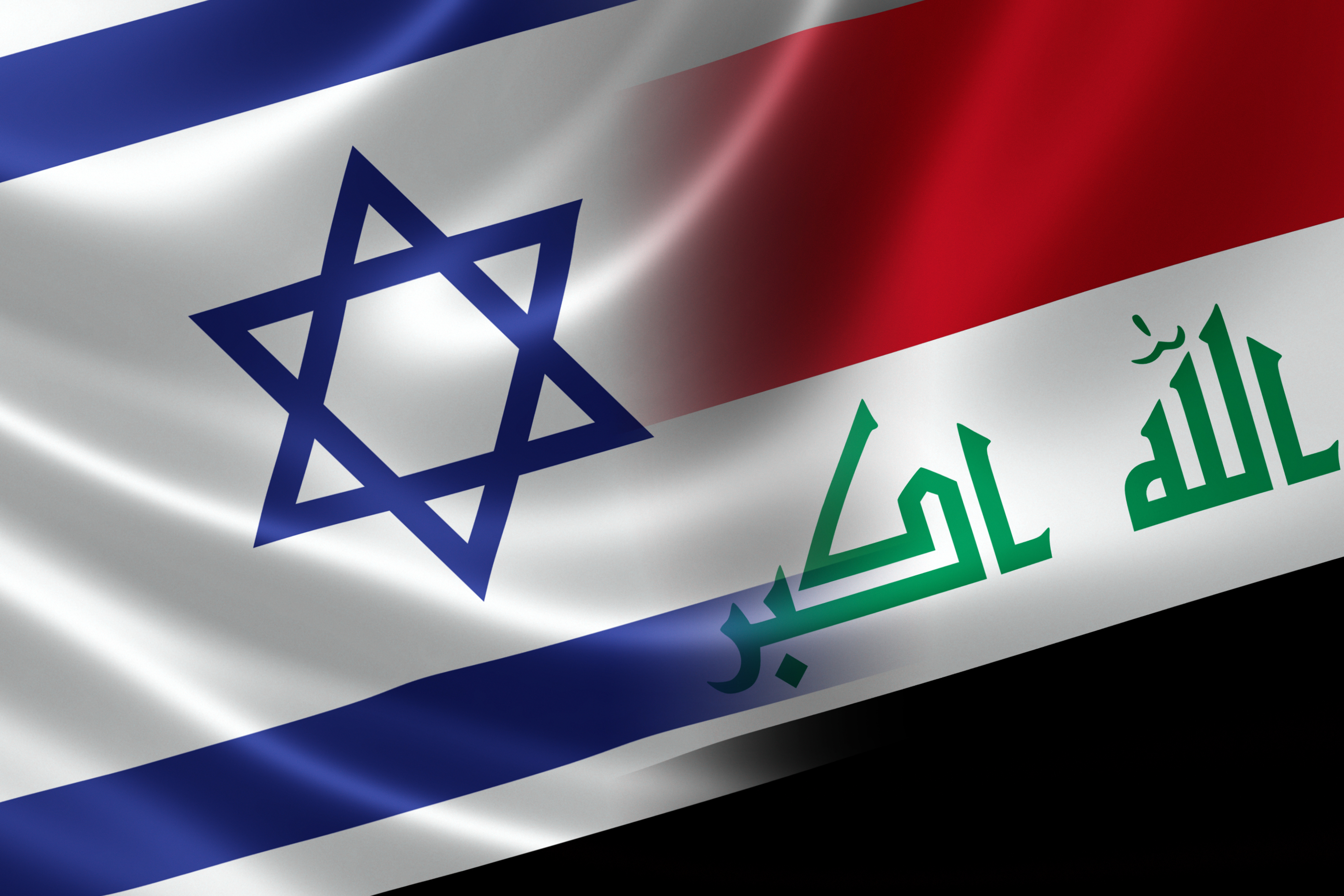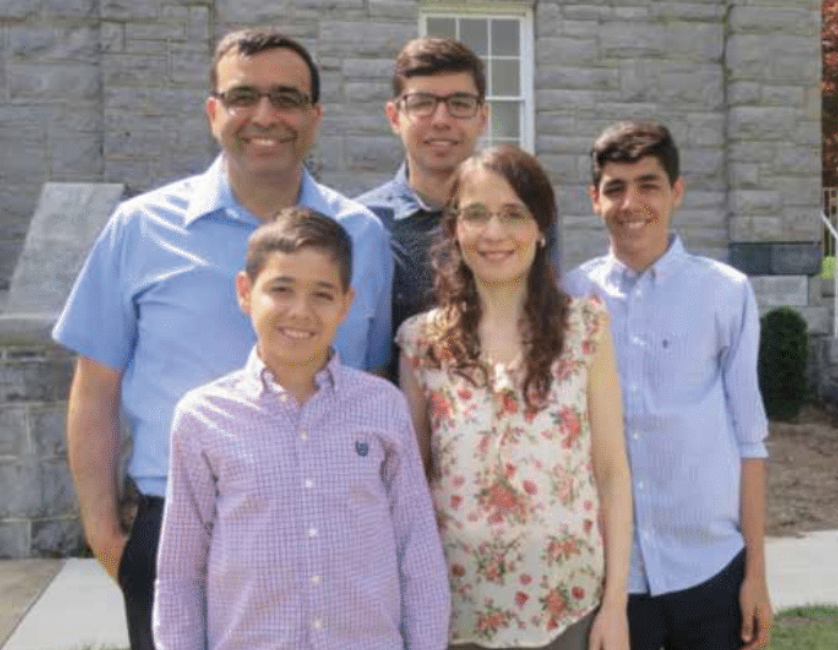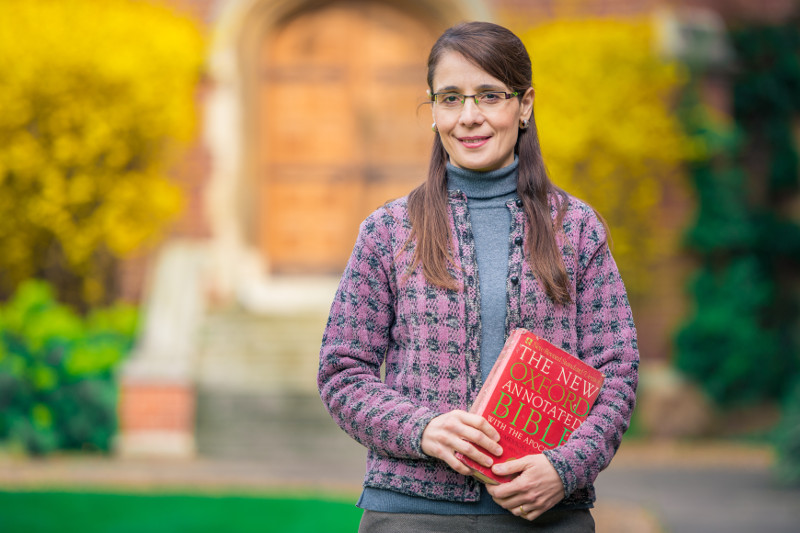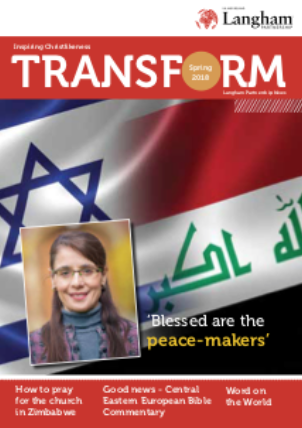Rula Mansour is a Palestinian Christian woman who lives in Israel, and a Langham Scholar. She shares her story, her research, and her future vision for peace.
In 1948 at the age of 12 my father became a refugee in his own country. After losing their land and property in Tiberias during the nakba, they started to rebuild their lives in Akko. This beautiful mixed Jewish-Palestinian city is where I was born and grew up, I had Palestinian and Israeli-Jewish friends and I honestly believed that both groups could live together in respect and harmony.
I never heard my parents speak negatively about Jewish people or the State of Israel. Instead, my father worked hard to integrate into Israeli society and became a successful and respected figure in his community. I learned perseverance from my father, but most importantly I saw forgiveness in action!
Conflicted identities
As a student of law at the Hebrew University in Jerusalem I began to realise that I was a second-class citizen, discriminated against in almost every aspect of life. With each renewed conflict between Palestinians and Israelis I was reminded again and again that I neither belonged to nor was welcome in Israeli society. So I experienced an unwanted struggle between my Palestinian identity and my Israeli citizenship. Why was my Palestinian identity rejected by the broader society and why is loyalty to both not allowed? It was only as my identity in Christ became superior that I began to see my conflicted identities as a blessing rather than a curse. I came to believe that I had the unique privilege of being an ambassador of peace to both parties in this conflict.
 This background explains the research topic for my PhD, which has been to find the best theological foundation for reconciliation within Palestinian evangelical churches. I started from Miroslav Volf’s theology of reconciliation, which reflects upon what kind of selves we need to become in order to be truly reconciled with our enemies. Relationships are key, he says: ‘I am who I am in relation to the other.’ So if we persist in excluding ‘the other’ from our own identity, we only succeed in losing ourselves. However, it is only if we re-centre around the cross that we will be capable and willing to embrace others and seek reconciliation. When I reflect on the struggle I had with my two identities, it was only when I included ‘the other’, the Israeli, in my identity, rather than excluding it, that I took my first step to embrace as an action of love.
This background explains the research topic for my PhD, which has been to find the best theological foundation for reconciliation within Palestinian evangelical churches. I started from Miroslav Volf’s theology of reconciliation, which reflects upon what kind of selves we need to become in order to be truly reconciled with our enemies. Relationships are key, he says: ‘I am who I am in relation to the other.’ So if we persist in excluding ‘the other’ from our own identity, we only succeed in losing ourselves. However, it is only if we re-centre around the cross that we will be capable and willing to embrace others and seek reconciliation. When I reflect on the struggle I had with my two identities, it was only when I included ‘the other’, the Israeli, in my identity, rather than excluding it, that I took my first step to embrace as an action of love.
Prosecutor and reconciler
After graduating from law school in 1996 and as part of my dream to be a reconciler, I decided to become a public prosecutor. This was difficult since, at the time, prosecutors in Israel were mostly Jewish, while more than 60% of the people in Galilee where I lived were Palestinians. Also, Palestinians did not approve of their people serving in the prosecution office, which was perceived to be one-sided against Palestinians. Nevertheless, after much waiting, I got the job. And so for the next 13 years I appeared in court serving both the Jewish and Palestinian communities, eventually working as Deputy Head of the Public Prosecution Office in Nazareth. Throughout my career, the following verse was my motto: “do justly and love mercy and walk humbly with thy God” [Micah 6:8].
I believe God used my appointment to break a barrier and stereotypes between both societies. The Israeli prosecution office has since become more open to Palestinian lawyers, and more Palestinian lawyers are encouraged to apply for such a job. This has not solved the Israeli-Palestinian conflict, of course. Nevertheless, the changes in the office have definitely meant that more justice is given to Palestinian citizens in Israel.
Cross-centred bridge-building
I have learned two vital lessons through this experience: first, that when we re-centre ourselves around the cross, we will be ready to become a bridge for others; second, that God honours small attempts made with faith and love, using them for a greater purpose.
God then brought me closer to accomplishing my dream to see the Palestinian Church play a role in reconciliation in our country. I resigned from my job to pursue a ministry of peace-making. My first step was to enrol in a PhD program at the Oxford Centre for Mission Studies, seeking a culturally contextual model of reconciliation for Palestinian evangelical churches.
I believe that the Palestinian Church in Israel can become a powerful agent of peace, seeking through its unique identity to become a bridge between Israelis and Palestinians. My vision is to challenge the church to have a prophetic role in our land; building a culture of accepting the ‘other’; offering transformative teaching that involves participants in activism, public engagement and the practice of nonviolence.
I am indebted to Langham Scholars for supporting me spiritually and financially throughout. After graduating in 2018, I plan to be involved in developing peace-studies programs that will equip participants with the academic and practical tools to approach conflict and its management, and to work for justice and peace. I pray that the Palestinian Church will seize this historical opportunity to play a role in reconciliation in such a time as this.
This article first appeared in LPUKI’s Transform Magazine, Spring 2018.



